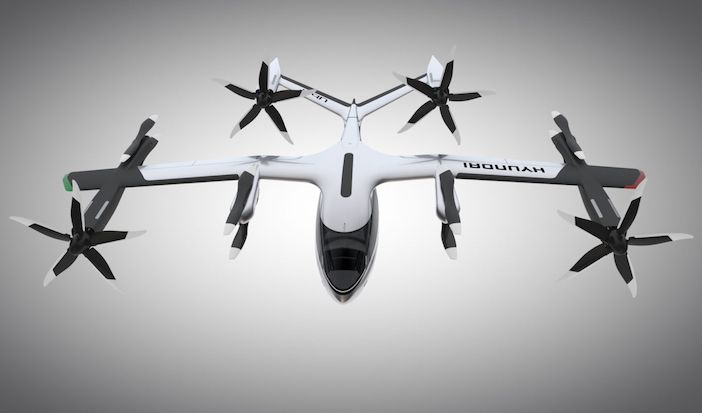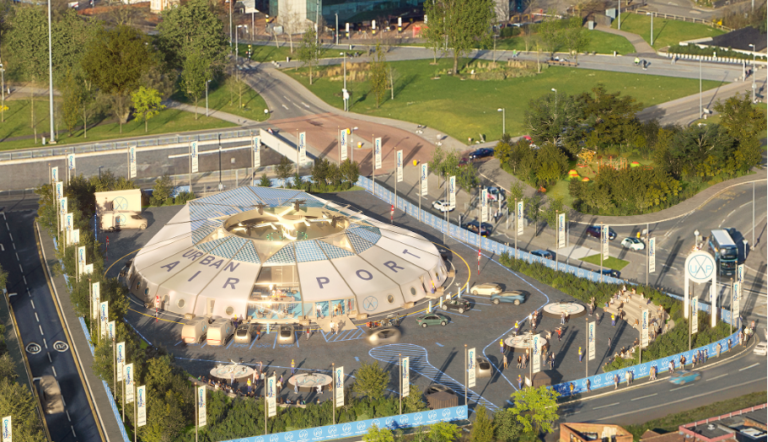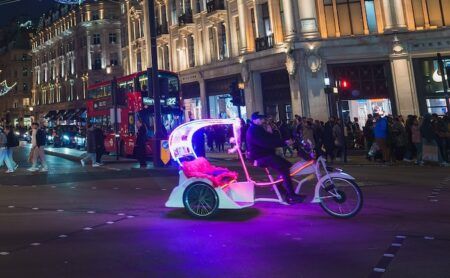Vertiport designer Urban-Air Port has announced a collaboration with fellow British innovators Altitude Angel and Safeguard Vertiports to provide unified traffic management (UTM) services and Civil Aviation Authority (CAA) certification for eVTOL (electric vertical take-off and landing) infrastructure.
The partners will work together to design, develop and demonstrate operational Air Architecture for ‘air taxis’ and unmanned cargo delivery drones, on a test site in Coventry, England, later this year. The UK government is supporting the initiative in a bit to unlock a future of clean urban air mobility.
“Cleaner, inter-city flight technology is vital not only to reducing emissions, but to better connecting remote communities, from small towns in the UK to isolated settlements all around the world,” says Rt Hon Kwasi Kwarteng, secretary of state for the Department of Business, Energy and Industrial Strategy. “As we build back greener from the pandemic, initiatives like the government-backed Air-One project will help us develop the infrastructure needed to make our dreams of flying taxis a reality.”
The urban air mobility market is growing fast. The first eVTOLs are expected to be commercialized in the next three to five years. Hyundai, a key partner of Urban-Air Port, is one of several companies developing an eVTOL passenger vehicle. Hyundai’s will be commercialized by 2028. Joby Aviation, the US-based aerospace start-up, plans to launch a commercial air taxi service in 2024. In April, UPS, the global logistics giant, announced a deal to purchase 150 eVTOL vehicles, for delivery in 2024, to cut delivery times and access smaller markets, demonstrating the growing maturity of the sector

The challenge now is to design the Air Architecture that allows these passenger vehicles to fly within and between cities and towns and to manage the thousands of delivery drones anticipated in the future, with Amazon already planning to launch a UK drone delivery service.
“We are proud to be part of Air Architecture,” says Richard Ellis, chief business officer at Altitude Angel. “By enabling eVTOL operators to safely transit through ‘air roads’ and integrate their operations into and around these urban airports, we will unlock the future potential of the national airspace infrastructure. Our platform will allow all users of the sky, from air-taxis and drone operators to general aviation and emergency service helicopters to share the airspace safely and securely.”
Similar to existing air corridors for commercial aircraft, air roads will be approved and regulated routes for future eVTOLs that will enable safe and efficient travel between Urban-Air Port hubs and other sites. In the initial phase, each corridor will provide segregated airspace at defined altitudes for individual manned and unmanned eVTOLs. Similar to traditional air traffic control, the process will initially be managed by people. As the systems mature, traffic monitoring will be conducted by intelligent autonomous systems and supervised by people.





